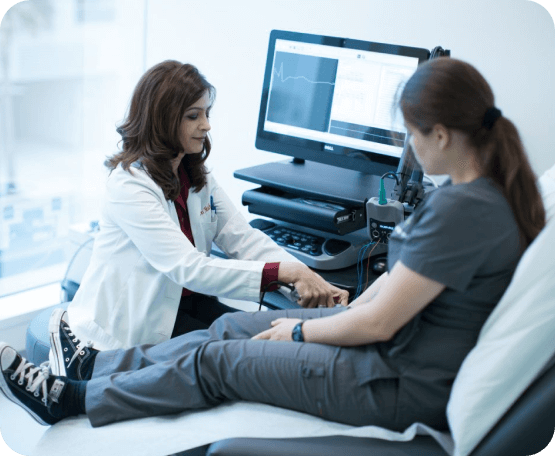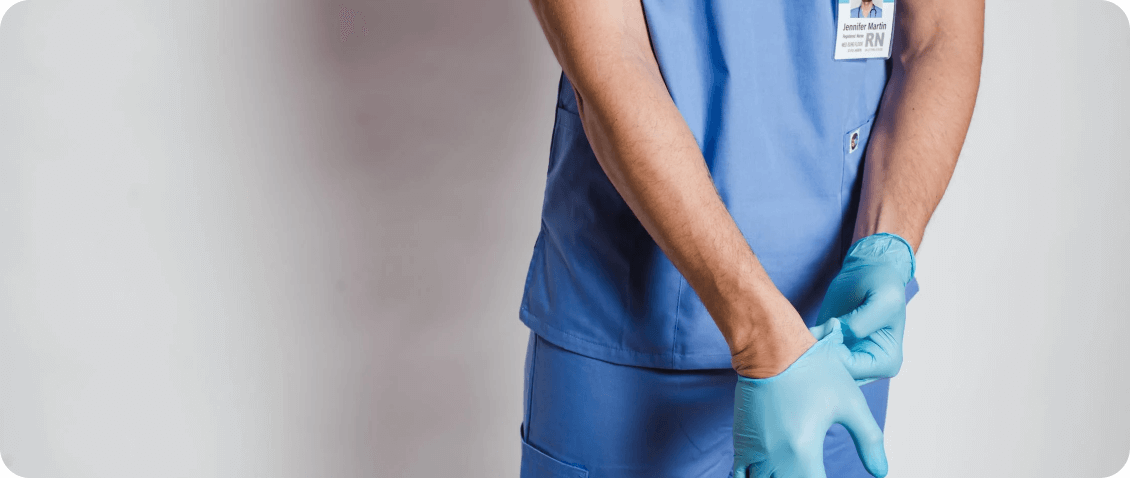
With technology moving at a rapid pace and innovative practices emerging every day, we are committed to looking towards the future and finding new insights into the treatment of rheumatic conditions. As lead investigators on our cutting-edge clinical trials, our physicians provide options and hope that go beyond conventional therapies.

Nerve Conduction Studies (NCS) and Needle Electromyography (EMG) are procedures performed to assess and diagnose the structural and functional integrity of the peripheral nervous system, including the peripheral nerves and muscles. These procedures are needed to assess a variety of neurological disorders including nerve compressions, radiculopathies, diabetic neuropathies, myopathies, ALS, and muscular dystrophies
1. No fasting or sedation is required prior to the procedure.
2. Dress in loose fitting clothes that permit access to the area to be tested or that are easily removed. Wear comfortable shoes that are easily removable.
3. Please do not apply any moisturizers or lotion on your body on the days leading up to the test.
4. Based on your medical condition, your physician may request other specific preparations.
5. Notify your physician of all medications (prescribed and over-the-counter) and herbal supplements that you are taking.

It is recommended to stop taking blood thinners prior to the EMG. Please always consult with your physician before stopping any medications and notify our office if your physician advises you not to stop taking any blood thinning medications. Please refer to the list below to see when you should stop taking them prior to your electrodiagnostic test.

The skin electrodes will be removed from your skin. The areas of the skin where a needle was inserted will be cleaned. After the test, you may return to your previous activities, unless your physician advises you differently. Your physician may give you additional or alternate instructions after the procedure, depending on your particular medical situation. RISKS OF THE PROCEDURE The voltage of the electrical pulses used during NCS is considered very low. There may be risks depending on your specific medical condition. Be sure to discuss any concerns with your physician prior to the procedure. Tell your physician if you have a cardiac defibrillator or pacemaker, as precautions may need to be taken.
The voltage of the electrical pulses used during NCS is considered very low. There may be risks depending on your specific medical condition. Be sure to discuss any concerns with your physician prior to the procedure. Tell your physician if you have a cardiac defibrillator or pacemaker, as precautions may need to be taken.

8750 Wilshire Blvd Suite 210,
Beverly Hills, CA 90211
Main Office Phone: (310) 652-0920
Main Office Fax: (310) 360-4812
Research Phone: (310) 360-9197
Research Fax: (310) 360-6219
Infusion Phone: (310) 360-4806
Billing Phone: (310) 652-2284
Billing Fax: (310) 855-9309